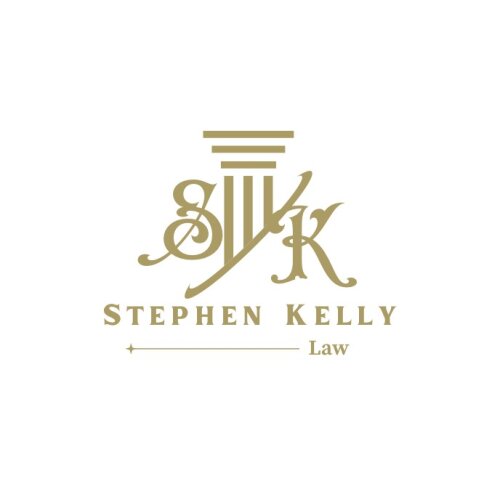Best Conveyancing Lawyers in Dublin
Share your needs with us, get contacted by law firms.
Free. Takes 2 min.
Free Guide to Hiring a Real Estate Lawyer
List of the best lawyers in Dublin, Ireland
About Conveyancing Law in Dublin, Ireland
Conveyancing is the legal process of transferring ownership of property from one party to another. In Dublin, Ireland, conveyancing ensures that the rights to a property are properly exchanged and recorded according to Irish law. This process involves various checks, contracts, payments, and formal registration with the Property Registration Authority. Conveyancing helps to protect both buyers and sellers throughout a property transaction and ensures that all necessary legal steps are completed before ownership changes hands.
Why You May Need a Lawyer
People commonly require legal help with conveyancing when buying or selling residential or commercial property in Dublin. Typical situations include preparing and reviewing contracts, conducting property searches, verifying title deeds, arranging for mortgage requirements, handling deposits and payments, and addressing legal issues that may arise during the transaction. Lawyers can identify potential risks or complications, ensure compliance with local regulations, and help resolve disputes between parties. Having a solicitor manage the conveyancing process can help prevent costly mistakes and provide peace of mind that the transfer is legally binding and valid.
Local Laws Overview
Irish law governs all property transactions in Dublin, with particular rules and procedures that buyers and sellers must follow. These include:
- Title Verification - Ensuring the seller has legal right to sell and the property is free from encumbrances.
- Contract of Sale - Drafting and exchanging legal agreements that specify terms of the sale.
- Planning Permissions - Checking that necessary planning consents or building regulations approvals are in place.
- Property Searches - Conducting local authority and environmental searches to uncover any restrictions or issues.
- Stamp Duty - Calculating and paying the required government tax on the transaction.
- Registration - Officially recording the new ownership with the Property Registration Authority.
- Mortgage Arrangements - Liaising with financial institutions to secure and register any mortgages taken out by the buyer.
Conveyancing in Dublin must comply with regulations under the Land and Conveyancing Law Reform Act 2009 and the Registration of Title Act 1964, among others, to provide legal protection to all parties involved.
Frequently Asked Questions
What is the role of a solicitor in conveyancing?
A solicitor represents your interests by conducting all legal checks, preparing documents, managing payments, and ensuring the process complies with Irish law. They guide you through the transaction and resolve any legal issues that may arise.
How long does the conveyancing process typically take in Dublin?
The process usually takes between six to twelve weeks from the time that the sale is agreed upon, but this can vary depending on circumstances such as delays in obtaining documents or mortgage approvals.
What costs are involved in conveyancing?
Costs typically include solicitor fees, stamp duty, Land Registry fees, search fees, and potentially surveyor costs. It is important to ask your solicitor for a detailed estimate of all expected costs in advance.
Do I need a survey before buying a property?
It is highly recommended to have a survey carried out on the property to identify any structural problems or legal issues before completing a purchase. This is separate from the conveyancing process but can influence your decision to proceed.
What is stamp duty and who pays it?
Stamp duty is a government tax paid by the buyer upon the transfer of property ownership. The amount is calculated as a percentage of the property’s value and must be paid before registration with the Property Registration Authority.
What searches are carried out during conveyancing?
Standard searches include planning searches, local authority searches, environmental checks, and, if necessary, searches for unpaid taxes or service charges that could affect the property.
What is the difference between registered and unregistered property?
Registered property is listed with the Property Registration Authority and has a folio number with detailed information about ownership and rights. Unregistered property relies on a chain of previous deeds, making the verification process more complex and time consuming.
Can I complete the conveyancing process myself?
While it is legally possible, conveyancing involves complex procedures and regulations. Mistakes can be costly. Therefore, most people choose to use a solicitor to protect their interests and ensure all legal requirements are met.
What happens on completion day?
On completion, the balance of purchase funds is paid, and ownership of the property is legally transferred. The buyer receives the keys, and the solicitor will arrange for the property to be registered in the new owner’s name.
What if problems are discovered after purchase?
If issues arise that were undisclosed or unknown at the time of sale, your solicitor can advise on possible legal remedies. In some cases, there may be grounds for compensation or legal action, depending on the circumstances.
Additional Resources
For more information and support, the following resources and organizations can be helpful:
- Law Society of Ireland - Provides guidance on finding a qualified solicitor and understanding legal rights in property transactions.
- Property Registration Authority - Responsible for the registration of property ownership in Ireland.
- Citizens Information - Offers accessible explanations of property laws and the conveyancing process in Ireland.
- Local Authority Planning Departments - Can provide details on planning permissions and property development guidelines.
- Revenue Commissioners - Information on stamp duty rates and payments related to property transactions.
Next Steps
If you require legal assistance with conveyancing in Dublin, begin by seeking a reputable solicitor experienced in property law. Prepare all relevant documents and information about the property, and be clear about your objectives and concerns. Ask your solicitor to provide a breakdown of costs, timelines, and the steps involved. Stay in regular contact throughout the process and address any questions or uncertainties promptly. Taking a proactive and informed approach will help ensure a smooth and secure property transaction.
Lawzana helps you find the best lawyers and law firms in Dublin through a curated and pre-screened list of qualified legal professionals. Our platform offers rankings and detailed profiles of attorneys and law firms, allowing you to compare based on practice areas, including Conveyancing, experience, and client feedback.
Each profile includes a description of the firm's areas of practice, client reviews, team members and partners, year of establishment, spoken languages, office locations, contact information, social media presence, and any published articles or resources. Most firms on our platform speak English and are experienced in both local and international legal matters.
Get a quote from top-rated law firms in Dublin, Ireland — quickly, securely, and without unnecessary hassle.
Disclaimer:
The information provided on this page is for general informational purposes only and does not constitute legal advice. While we strive to ensure the accuracy and relevance of the content, legal information may change over time, and interpretations of the law can vary. You should always consult with a qualified legal professional for advice specific to your situation.
We disclaim all liability for actions taken or not taken based on the content of this page. If you believe any information is incorrect or outdated, please contact us, and we will review and update it where appropriate.












